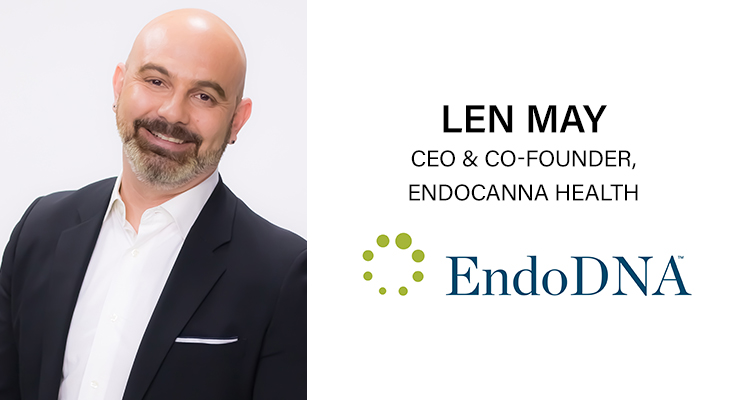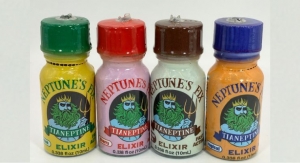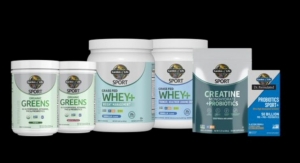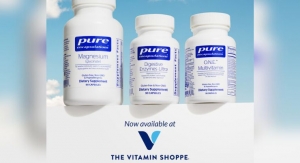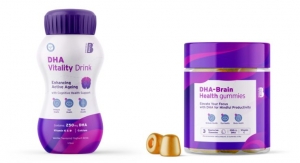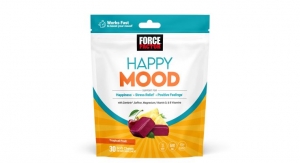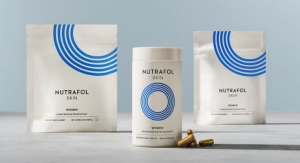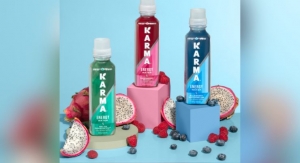By Sheldon Baker, CEO of the Baker Dillon Group LLC10.08.21
Len May, MSC, brings more than 25 years of cannabis and genomics experience to Endocanna Health. A pioneer in the medical cannabis industry, May has been instrumental in shaping legislation and culture. He has held past positions as President of the Cannabis Action Network and Board Member and Lifetime Member of California Cannabis Association. May is the current chair of the CBD & Cannabinoid Industry Association science board and is a stakeholder in some of the industry’s most iconic brands. His areas of expertise include the workings of the endocannabinoid system and how genetic expression plays a role in human experiences. As a Certified Medical Cannabis Specialist in Medicinal Genomics, May has an in-depth knowledge of genomics, cannabinoids and terpenes, and their interaction with the endocannabinoid system. He holds a Masters of Medical Cannabis and a certificate in Endocannabinoid Formulation from the Institute for the Advancement of Integrative Medicine. He has presented on these topics on some of the world’s most prestigious stages in his mission to help educate the population about the healing powers of cannabis. Author of Making Cannabis Personal, he is also the host of the Everything is Personal podcast.
Area Code 420 (AC 420): Is the lack of education regarding cannabinoids a major stumbling block among consumers?
May: Absolutely. There are over 400 distinct chemical compounds present in cannabis, including cannabinoids, terpenes, flavonoids, lipids, and other plant materials. The effects of all those compounds coming together just right and matching an individual’s genetic expression is what creates the desired effects. It is like conducting a concert where all the instruments work in harmony to create a desired experience. The other challenge is that the endocannabinoid system was only discovered in 1992, so a lot of healthcare professionals are unfamiliar with it and unprepared to give medical advice. The last part of the puzzle is that cultivators and manufacturers do not provide all the information on what compounds are included in their products. At the very least, cannabinoid and terpene profiles need to be mandatory. It is all quite complicated, and prohibition absolutely doesn’t help.
AC 420: At a young age you were diagnosed with ADD. You had to fend for yourself?
May: When I was about 14, I was diagnosed with ADD and my doctor prescribed Ritalin to me. It kind of worked, but made me feel depressed. As a result, they prescribed Zoloft and I hated the way these all made me feel. One morning I was hanging out with some kids who asked me if I wanted to smoke a cigarette. I said yes, to be cool, and they proceeded to share one cigarette with me. After I took a puff and coughed, I realized it was not a cigarette; they put cannabis in it. I went to class and all my windows in my head slowed down so I could focus. And that is how cannabis became my go-to medicine. However, not all of it affected me the same way.
AC 420: Based in Southern California, do you interface with Hollywood celebrities about their use of CBD and cannabis products?
May: Absolutely. Since we are HIPAA compliant, we do not reveal who our customers are. I can just say that we are proud and grateful we can make a significant impact in people’s lives.
AC 420: Actress Christina Applegate was recently diagnosed with MS. Might cannabis be an alternative to taking numerous prescription drugs?
May: Studies on the use of cannabis and multiple sclerosis (MS) symptoms tell us that cannabis extract can help relieve muscle stiffness (spasticity) and spasms. The studies have also showed significant reduction in pain and bladder urgency. One global study looked at over 7,500 participants. However, they are not just smoking cannabis. They are consuming a capsule or sublingual dose that is more like 1:1 CBD:THC and we are still looking at the terpene profiles. Based on this evidence and hundreds of observational patients reported outcome data it is clear that cannabis is a great alternative to prescription medications.
AC 420: Why did you write the book, Making Cannabis Personal?
May: There are several reasons I decided to write the book. Firstly, I wanted to share my personal journey with cannabis. I find it so ironic that my parents kicked me out for cannabis and now consume formulations I developed. My friends called me a “druggy” back in the day and I could feel the stigma. Also, when I was in the dispensary business there was a lot of stress since it is a cash business and under Prop 215. I wanted to document that journey for people. But most importantly, I wrote it to memorialize stories of real people and their personal experience with cannabis that started with their genetic blueprint. This way people can relate and know they are not alone. Cannabis is safe but it is also a drug and people can experience adverse effects that many will not speak about. This book can help guide people through a personal experience with cannabis to help avoid an adverse experience and enjoy an optimal experience that includes looking at drug interactions, metabolic function for dosing, and mitigating the expression of genetic predispositions.
AC 420: How large a role does genetics play therapeutically?
May: While 99.9% of your DNA is identical to every other person on the planet, there is a 0.1% that is unique to you. These differences in your DNA are called variants. Variants in your DNA can be linked to certain health conditions, and even physical traits, like eye color or a cleft chin. Variants in our DNA are also responsible for our individual experience with cannabinoids and CBD, and can tell us whether we can tolerate THC in any form, including full spectrum, isolate and broad-spectrum products; the genetic expression, or effect, individual terpenes will have on your endocannabinoid system; your metabolic function level (ultra-fast, average, or poor metabolizer), which determines the dosing; and any drug-to-drug interactions you could experience. Therefore, genetics play a huge role in therapeutics, but big pharma likes a much more cookie-cutter approach. The future of therapeutics and drug design will be personalized to individual genetics.
AC 420: Do you use both CBD and cannabis products?
May: Yes, I have a personalized regiment. Once I studied my genetics, epigenetics, microbiome, and other biomarkers I worked on optimizing myself. In the morning I consume my personal vitamins including my high-CBD, low-THC tincture with terpenes and other plant-derived essential oils to support my focus. I prefer a sublingual delivery modality. In the evening I wind down with cannabis flower that is not high in THC since that will activate areas of your brain that may prevent you from getting a restful sleep. I prefer less than 20% but fully expressed cannabis cultivars that include linalool and myrcene, as well as some beta caryophyllene.
AC 420: What are your thoughts about the road the federal government will take to legalize CBD/cannabis?
May: Well, we have been fighting this battle for a long time. There are a lot of politics that are involved, but even more importantly lobbying dollars. I feel there are two significant things that happened that can move the needle toward federal policy changes. The first is the FDA’s approval of GW Pharma’s Epidiolex for seizure reduction associated with a form of epilepsy called Dravets. This showed big pharma a path to look at cannabis-derived chemovars for targeted therapeutics. The second is the revenue that the states are generating from legal cannabis sales. The federal government wants a piece of that; hence, the Safe Banking Act that was proposed and passed the House. My feeling is that cannabis will be de-scheduled federally and states will be given the rights to create their own legislation around cannabis. This is very similar to what happened with the end of alcohol prohibition; some states decided to prohibit alcohol and others were ok with open containers.
AC 420: Money talks. Do you feel the need for federal revenue will play a big role in the legalization process?
May: The need for federal revenue, new scientific discoveries, and clinical/observational research. That along with international expansion and, most importantly, the dual path of medicinal cannabis being regulated, and other forms individually considered as nutraceuticals or FDA-approved medical food products. Having said that, the federal government will want a chunk of all the revenue being generated. There is no greater incentive.
AC 420: Are federal government leaders reluctant to approve cannabis because of financial relationship with pharma companies?
May: That is partially true, but pharma is involved in the cannabis space. Once we have a few more FDA-approved drugs, that will change. The challenge with cannabis is the over 400 different components in the plant. It is very cumbersome to try and regulate all the different combinations of cannabinoids.
AC 420: Through all the trials and tribulations of CBD and cannabis regulations, what makes you laugh?
May: The entire industry cracks me up. There are so many characters. I have so many stories of sitting in board rooms and talking about very important scientific facts while the c-suite executives from the other company are medicating with a vape. Halfway through the meeting I can see their eyes glaze over and I knew it was science overload. My goal has always been the people who not only need cannabis to support their symptomatic conditions but also as a preventative supplement. The journey over the last more than 20 years, has definitely provided a ton of smiles and laughs. We are at its infancy and when my daughter and her friends are my age, they will look back at this era in disbelief that we actually made a plant that grows in the ground with so many therapeutic properties illegal.
Sheldon Baker is CEO of the Baker Dillon Group LLC and has created numerous nutraceutical brand marketing communications and public relations campaigns for many well-known supplement and food industry companies. For interview consideration or brand marketing consulting, contact him at Contact@The420AreaCode.com.
Area Code 420 (AC 420): Is the lack of education regarding cannabinoids a major stumbling block among consumers?
May: Absolutely. There are over 400 distinct chemical compounds present in cannabis, including cannabinoids, terpenes, flavonoids, lipids, and other plant materials. The effects of all those compounds coming together just right and matching an individual’s genetic expression is what creates the desired effects. It is like conducting a concert where all the instruments work in harmony to create a desired experience. The other challenge is that the endocannabinoid system was only discovered in 1992, so a lot of healthcare professionals are unfamiliar with it and unprepared to give medical advice. The last part of the puzzle is that cultivators and manufacturers do not provide all the information on what compounds are included in their products. At the very least, cannabinoid and terpene profiles need to be mandatory. It is all quite complicated, and prohibition absolutely doesn’t help.
AC 420: At a young age you were diagnosed with ADD. You had to fend for yourself?
May: When I was about 14, I was diagnosed with ADD and my doctor prescribed Ritalin to me. It kind of worked, but made me feel depressed. As a result, they prescribed Zoloft and I hated the way these all made me feel. One morning I was hanging out with some kids who asked me if I wanted to smoke a cigarette. I said yes, to be cool, and they proceeded to share one cigarette with me. After I took a puff and coughed, I realized it was not a cigarette; they put cannabis in it. I went to class and all my windows in my head slowed down so I could focus. And that is how cannabis became my go-to medicine. However, not all of it affected me the same way.
AC 420: Based in Southern California, do you interface with Hollywood celebrities about their use of CBD and cannabis products?
May: Absolutely. Since we are HIPAA compliant, we do not reveal who our customers are. I can just say that we are proud and grateful we can make a significant impact in people’s lives.
AC 420: Actress Christina Applegate was recently diagnosed with MS. Might cannabis be an alternative to taking numerous prescription drugs?
May: Studies on the use of cannabis and multiple sclerosis (MS) symptoms tell us that cannabis extract can help relieve muscle stiffness (spasticity) and spasms. The studies have also showed significant reduction in pain and bladder urgency. One global study looked at over 7,500 participants. However, they are not just smoking cannabis. They are consuming a capsule or sublingual dose that is more like 1:1 CBD:THC and we are still looking at the terpene profiles. Based on this evidence and hundreds of observational patients reported outcome data it is clear that cannabis is a great alternative to prescription medications.
AC 420: Why did you write the book, Making Cannabis Personal?
May: There are several reasons I decided to write the book. Firstly, I wanted to share my personal journey with cannabis. I find it so ironic that my parents kicked me out for cannabis and now consume formulations I developed. My friends called me a “druggy” back in the day and I could feel the stigma. Also, when I was in the dispensary business there was a lot of stress since it is a cash business and under Prop 215. I wanted to document that journey for people. But most importantly, I wrote it to memorialize stories of real people and their personal experience with cannabis that started with their genetic blueprint. This way people can relate and know they are not alone. Cannabis is safe but it is also a drug and people can experience adverse effects that many will not speak about. This book can help guide people through a personal experience with cannabis to help avoid an adverse experience and enjoy an optimal experience that includes looking at drug interactions, metabolic function for dosing, and mitigating the expression of genetic predispositions.
AC 420: How large a role does genetics play therapeutically?
May: While 99.9% of your DNA is identical to every other person on the planet, there is a 0.1% that is unique to you. These differences in your DNA are called variants. Variants in your DNA can be linked to certain health conditions, and even physical traits, like eye color or a cleft chin. Variants in our DNA are also responsible for our individual experience with cannabinoids and CBD, and can tell us whether we can tolerate THC in any form, including full spectrum, isolate and broad-spectrum products; the genetic expression, or effect, individual terpenes will have on your endocannabinoid system; your metabolic function level (ultra-fast, average, or poor metabolizer), which determines the dosing; and any drug-to-drug interactions you could experience. Therefore, genetics play a huge role in therapeutics, but big pharma likes a much more cookie-cutter approach. The future of therapeutics and drug design will be personalized to individual genetics.
AC 420: Do you use both CBD and cannabis products?
May: Yes, I have a personalized regiment. Once I studied my genetics, epigenetics, microbiome, and other biomarkers I worked on optimizing myself. In the morning I consume my personal vitamins including my high-CBD, low-THC tincture with terpenes and other plant-derived essential oils to support my focus. I prefer a sublingual delivery modality. In the evening I wind down with cannabis flower that is not high in THC since that will activate areas of your brain that may prevent you from getting a restful sleep. I prefer less than 20% but fully expressed cannabis cultivars that include linalool and myrcene, as well as some beta caryophyllene.
AC 420: What are your thoughts about the road the federal government will take to legalize CBD/cannabis?
May: Well, we have been fighting this battle for a long time. There are a lot of politics that are involved, but even more importantly lobbying dollars. I feel there are two significant things that happened that can move the needle toward federal policy changes. The first is the FDA’s approval of GW Pharma’s Epidiolex for seizure reduction associated with a form of epilepsy called Dravets. This showed big pharma a path to look at cannabis-derived chemovars for targeted therapeutics. The second is the revenue that the states are generating from legal cannabis sales. The federal government wants a piece of that; hence, the Safe Banking Act that was proposed and passed the House. My feeling is that cannabis will be de-scheduled federally and states will be given the rights to create their own legislation around cannabis. This is very similar to what happened with the end of alcohol prohibition; some states decided to prohibit alcohol and others were ok with open containers.
AC 420: Money talks. Do you feel the need for federal revenue will play a big role in the legalization process?
May: The need for federal revenue, new scientific discoveries, and clinical/observational research. That along with international expansion and, most importantly, the dual path of medicinal cannabis being regulated, and other forms individually considered as nutraceuticals or FDA-approved medical food products. Having said that, the federal government will want a chunk of all the revenue being generated. There is no greater incentive.
AC 420: Are federal government leaders reluctant to approve cannabis because of financial relationship with pharma companies?
May: That is partially true, but pharma is involved in the cannabis space. Once we have a few more FDA-approved drugs, that will change. The challenge with cannabis is the over 400 different components in the plant. It is very cumbersome to try and regulate all the different combinations of cannabinoids.
AC 420: Through all the trials and tribulations of CBD and cannabis regulations, what makes you laugh?
May: The entire industry cracks me up. There are so many characters. I have so many stories of sitting in board rooms and talking about very important scientific facts while the c-suite executives from the other company are medicating with a vape. Halfway through the meeting I can see their eyes glaze over and I knew it was science overload. My goal has always been the people who not only need cannabis to support their symptomatic conditions but also as a preventative supplement. The journey over the last more than 20 years, has definitely provided a ton of smiles and laughs. We are at its infancy and when my daughter and her friends are my age, they will look back at this era in disbelief that we actually made a plant that grows in the ground with so many therapeutic properties illegal.
Sheldon Baker is CEO of the Baker Dillon Group LLC and has created numerous nutraceutical brand marketing communications and public relations campaigns for many well-known supplement and food industry companies. For interview consideration or brand marketing consulting, contact him at Contact@The420AreaCode.com.

